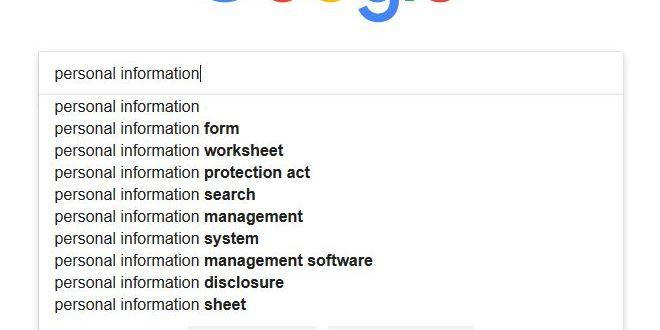Info@wiperts.com
Wiping Down Google
Google can find your personal information faster than phonebooks
When we were first introduced to the internet, we all saw it as a clean place. The things we could do were limited, but back then we thought words on a CRT screen couldn’t affect us in real life. Broadband networks weren’t fully built and Edge-connections were barely coming online for mobile phones. However, Silicon Valley reached a momentous milestone with the duo-core processor and computing as we know it today truly came about.
Faster processors meant that video streaming via web browser wasn’t just theoretical anymore. These duo-core computers were fast enough to receive data and translate it into a video in real-time. Relying on pre-recorded media like CDs and DVDs wasn’t the only way to receive information anymore. Phonebooks briefly held on by a thread, but everyone knew it was ridiculous to use something so outdated when something so much faster was available.
Broadband internet rolled out over the next ten years and Google took over the digital sphere. Personal information like names, addresses, and phone numbers were now Google’s business. Displaying your private info next to expensive ads was how phonebook companies made money; Google and many other websites generate revenue by doing the same exact thing. Your private information is worth thousands, if not millions and billions of dollars – telephone book companies used to be huge before Google came around.
Common names, but specific results
If someone wants to know more about you, they can literally Google it. The more specific they are with their search terms, the more specific Google will be. Google even uses data from their browser and their online accounts (Facebook, Google, etc.) to further narrow down the search results. Not many people realize this, but not everyone receives the same Google search results. Basically, Google uses a lot of personal information to deliver personalized search results.
Haven’t you ever wondered how Google pulls up relevant search results on people that have common names? Google is not finding a needle in a haystack. Google relies on geolocation, the people you know on social media, and previous search results.
When someone is looking for you online, Google knows their objective and is eager to deliver results. Google can figure out that you’re looking for someone, especially if the search query includes a name and the keyword “address.”
For example, Googling “Mark Zuckerberg’s address” will tell Google that I’m looking for someone’s address. According to Google, he has several houses/addresses. You may not be a public figure or celebrity, but Google can do this to anyone.
The person looking for you will type in your name along with relevant information. Google analyzes which search results are clicked on and which ones are not. It re-configures its search algorithm in real-time, so whoever is trying to find your personal information will have an easier time. When that person does find what they’re looking for, your address probably won’t be the only thing that Google pulls up. Private information is often found in bundles.
In theory, Google should be able to “sanitize” data it receives – automatically removing Social Security Numbers, credit card numbers, and bank account numbers from its search index. However, everyone knows that there’s no such thing as a perfect computer program. With billions of people using Google, private information slips through the cracks all the time.
Remove yourself from Google
People used to fight tooth and nail to remove themselves from the local phonebook. Now, this sentiment is coming back with Google’s ever-growing invasion of privacy. People don’t want to be publicly listed on Google and they certainly want their Facebook profile to be mostly, if not completely private.
A lot of trouble comes when your front door and windows are left wide open for everyone to see. Don’t let Google profit from selling your information and close the curtains on any Facebook peepers. Stop prying eyes from seeing your personal information.
Clean your internet footprints by using a professional service like Wiperts. There are people looking for your personal information on Google, Facebook, and other websites. Whether they mean to do you harm or not is not certain, but it’s always better to be safe than sorry. The less information people can find on you, the quieter your life will be.
Wiperts can remove your private information from Intelius, Spokeo, BeenVerified, Whitepages, MyLife – but will not remove you from any websites that you deem acceptable. Maintaining a balance between public identity and personal life is not easy in 2018, but Wiperts can certainly help.







